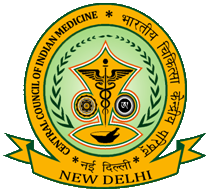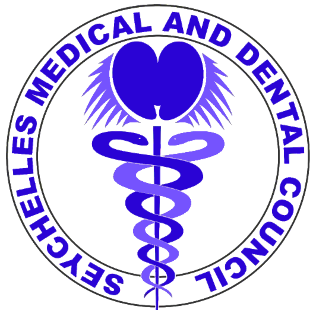Related Research Articles

A registered nurse (RN) is a nurse who has graduated or successfully passed a nursing program from a recognized nursing school and met the requirements outlined by a country, state, province or similar government-authorized licensing body to obtain a nursing license. An RN's scope of practice is determined by legislation, and is regulated by a professional body or council.

A psychologist is a professional who practices psychology and studies mental states, perceptual, cognitive, emotional, and social processes and behavior. Their work often involves the experimentation, observation, and interpretation of how individuals relate to each other and to their environments.
The Health and Care Professions Council (HCPC), formerly the Health Professions Council (HPC), is a statutory regulator of over 280,000 professionals from 15 health and care professions in the United Kingdom. The Council reports its main purpose is to protect the public. It does this by setting and maintaining standards of proficiency and conduct for the professions it regulates. Its key functions include approving education and training programmes which health and care professionals must complete before they can register with the HCPC; and maintaining and publishing a Register of health and care providers who meet pre-determined professional requirements and standards of practice.

The Indian Medical Association (IMA) is a national voluntary organisation of physicians in India. It was established in 1928 as the All India Medical Association, and was renamed the Indian Medical Association in 1930. It is a society registered under The Societies Act of India.

The General Medical Council (GMC) is a public body that maintains the official register of medical practitioners within the United Kingdom. Its chief responsibility is to "protect, promote and maintain the health and safety of the public" by controlling entry to the register, and suspending or removing members when necessary. It also sets the standards for medical schools in the UK. Membership of the register confers substantial privileges under Part VI of the Medical Act 1983. It is a criminal offence to make a false claim of membership. The GMC is supported by fees paid by its members, and it became a registered charity in 2001.

The Veterinary Council of India (VCI) is a statutory body which regulates veterinary practice in India. Established under the Ministry of Agriculture of the Government of India in 1984, and based in New Delhi, the council is governed by the Indian Veterinary Council Act, 1984. The first members were nominated in 1989. The first elections to the council took place in 1999. Since May 2019 after the creation of Ministry of Fisheries, Animal Husbandry and Dairying the Veterinary Council of India is functional as a statutory body under this ministry.

Homeopathy is fairly common in some countries while being uncommon in others. In some countries, there are no specific legal regulations concerning the use of homeopathy, while in others, licenses or degrees in conventional medicine from accredited universities are required.
Osteomyology is a multi-disciplined form of alternative medicine found almost exclusively in the United Kingdom and is loosely based on aggregated ideas from other manipulation therapies, principally chiropractic and osteopathy. It is a results-based physical therapy tailored specifically to the needs of the individual patient. Osteomyologists have been trained in osteopathy and chiropractic, but do not require to be regulated by the General Osteopathic Council (GOsC) or the General Chiropractic Council (GCC).
The Medical Council is the regulator of the medical profession in Ireland. It maintains the register of medical practitioners licensed to practice, and has the power to place restrictions on or revoke such licences, in cases of questions about a doctor's fitness to practise. As of 2022 the president of the council is Dr Suzanne Crowe, and its chief executive officer was Leo Kearns.

The Medical Act, An Act to Regulate the Qualifications of Practitioners in Medicine and Surgery, also referred to as the Medical Act 1858, was an Act of the Parliament of the United Kingdom which created the General Medical Council to regulate doctors in the UK.
The Government of Delhi, officially the Government of the National Capital Territory of Delhi (GNCTD) is the governing body of the Union Territory of Delhi, whose urban area is the seat of the Government of India. It also governs the city or local governments in the area as per the 74th Constitutional Amendment Act.
The Bangladesh Medical and Dental Council (BMDC) is the professional regulatory body that monitors the practice of medicine in Bangladesh.It was formed under the Bangladesh Medical Council Act. This act was made in 1973, hence it is also called 1973 Act of Bangladesh Medical Council. The act of 1973 was repealed in 1980 & Bangladesh Medical & Dental Council Act was passed by the parliament on 9th April, 1980.

Central Council of Indian Medicine (CCIM) was a statutory body under the Ministry of AYUSH, Government of India between 1971 and 2021. The CCIM was set up in 1971 under the Indian Medicine Central Council Act, which was passed in 1970. It is one of the Professional councils under University Grants Commission (UGC) to monitor higher education in Indian systems of medicine, including Ayurveda, Siddha, Unani and Sowa-Rigpa.

The Seychelles Medical and Dental Council (SMDC) was created in 1994 by the Medical Practitioners and Dentists Act. Its function is regulatory.
Uganda Medical and Dental Practitioners Council is a quasi-government professional organisation, established by Act of Parliament, responsible for licensing, monitoring and regulating the practice of medicine and dentistry in the country. The organization's mandate includes the regulation of both the practitioners and the practices from where they practice their professions.
The New South Wales Health Care Complaints Commission, is an independent statutory body created by the Parliament of New South Wales, Australia to receive, assess, resolve or prosecute complaints relating to health service providers in New South Wales. The HCCC plays a unique role in maintaining the integrity of the NSW health care system by receiving and assessing complaints about health service providers in NSW. These may be:
Indian Medical Council Act, 1956 was an Indian legislation that provided for the constitution of the Medical Council of India (MCI). The Act was repealed on 25 September 2020 and the MCI was dissolved on the same date. Prior to its dissolution, the MCI regulated standards of medical education, permission to start colleges, courses or increase the number of seats, registration of doctors, standards of professional conduct of medical practitioners. The MCI was replaced by the Nation Medical Commission.
The Sri Lanka Medical Council (SLMC) is a statutory body established in 1998, replacing the former Ceylon Medical Council. It is tasked with the regulation of the medical profession, upholding medical ethnical practices, standards of education and the safety of medical patients in Sri Lanka.

National Medical Commission (NMC) is an Indian regulatory body of 33 members which regulates medical education and medical professionals. It replaced the Medical Council of India on 25 September 2020. The Commission grants recognition of medical qualifications, gives accreditation to medical schools, grants registration to medical practitioners, and monitors medical practice and assesses the medical infrastructure in India.
The Government of National Capital Territory of Delhi (Amendment) Act, 2021 was enacted by the Government of India on 28 March 2021. It amends the Government of National Capital Territory of Delhi Act, 1991 to give primacy to the centrally appointed Lieutenant Governor of Delhi and make the elected Government of Delhi subsidiary. The elected government will now have to seek the opinion of the Lieutenant Governor for any executive action.